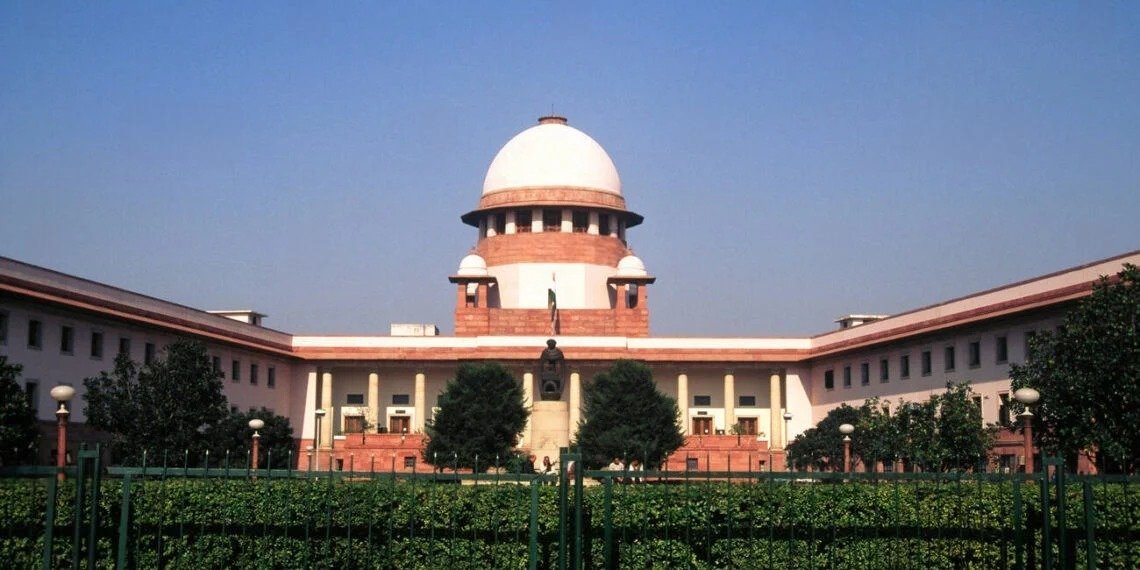Solicitor General Tushar Mehta argued that solutions must come through politics, not the judiciary, but the Supreme Court bench pressed on constitutional safeguards to preempt Governors for delaying passage of bills.
BY PC Bureau
New Delhi, August 21 — The Supreme Court on Thursday observed that if Governors indefinitely withhold assent to Bills passed by elected legislatures, it could render the law-making body “totally defunct,” raising questions over the limits of judicial intervention in such a situation.
The five-judge bench, comprising Chief Justice of India BR Gavai, Justice Surya Kant, Justice Vikram Nath, Justice PS Narasimha and Justice AS Chandurkar, was hearing arguments on whether Governors can indefinitely delay their decision on Bills, and to what extent courts can intervene in such situations.
Court Questions Governor’s Powers
Responding to Solicitor General Tushar Mehta’s submission that the judiciary cannot issue binding directions to the President or Governors, CJI Gavai asked whether courts are truly powerless if constitutional authorities simply choose not to act.
“Suppose an Act is passed by the competent legislature and the Hon’ble Governor only sits over it, then what? If this continues, it will make the legislature totally defunct,” CJI remarked.
READ: Parliament Passes Gaming Bill, Industry Stares at Massive Losses, Job Cuts
The Chief Justice drew a parallel with past rulings striking down constitutional amendments that attempted to remove judicial review, asking whether the same principle could apply here: “However high the constitutional functionaries may be, if they do not act, is the Court powerless?”
The Supreme Court on Aug 20 observed that in case a Governor has the power to permanently withhold assent to the bills passed by State legislature, it would leave the elected State government at the whims and fancies of an unelected Governor.
The Constitution Bench was hearing a… pic.twitter.com/l8bQ3aa0yz
— Bar and Bench (@barandbench) August 20, 2025
SG: Solutions Lie in Political Process, Not Judiciary
The Solicitor General reiterated that such “extreme situations” cannot justify judicial intervention. “Solutions lie elsewhere, solutions lie in the political sphere. The Constitution entrusts responsibility to political functionaries, and they are answerable to the people,” he argued.
CJI, however, pointedly remarked: “The Hon’ble Governor is not answerable to the people.” To this, SG Mehta responded that Governors are “the most vulnerable office,” removable at the discretion of the President, and that the “system takes care of administrative lapses.”
Immunity vs Judicial Review
Justice Narasimha pressed the government further, questioning whether constitutional immunity could extend to inaction. He cited the Kesar-i-Hind judgment, which distinguished between the Governor’s actual decision — protected from review — and the decision-making process, which remains open to judicial scrutiny.
“When the constitutional process of granting, not granting or referring a Bill is not being done, to what extent can immunity apply indefinitely?” he asked.
READ: Assam Rifles Shuts Up Biren Singh: All 42,000 Myanmar Entrants Documented, Not Illegal
The SG clarified that his argument was not based on immunity but on separation of powers. He pointed out that courts have in the past intervened in Governor’s decisions under Article 356 (President’s Rule), but insisted that courts cannot substitute themselves for a Governor’s role in assenting to Bills.
Larger Constitutional Question
The bench observed that the issue has acquired urgency as petitions from four states — Kerala, Tamil Nadu, Punjab and West Bengal — are pending, all complaining of Governors indefinitely delaying Bills.
“If the Assembly, elected by a two-thirds majority, unanimously passes a Bill, and the Governor does not act for years, what happens to democracy and the will of the people?” CJI asked.
SG Mehta stuck to his position that either Parliament must amend the Constitution to prescribe timelines or the issue must be resolved politically, not judicially. He also objected to the Madras High Court’s ruling that declared “deemed assent” when the Tamil Nadu Governor delayed Bills, insisting that such judicial innovations cannot replace constitutional procedure.
Before concluding, the bench also hinted that one unresolved query in the Presidential Reference — whether a State itself can move the Supreme Court under Article 32 — might have to be examined separately.
The matter will continue next week, with the Court expected to hear submissions from the States that sought clarity on Governors’ delays.














